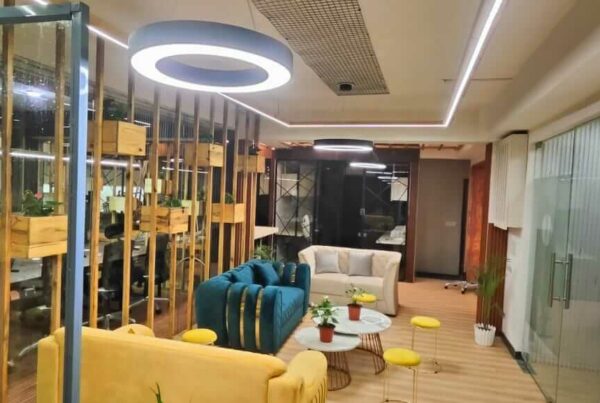Not all startups are created equal — the majority will fail. In fact, the vast majority will fail. While breaking into tech is a dream for many, not all dreams come true. Casual dress code, great pay, lots of perks, are some of the perks which seem attractive.
Unfortunately, this also means that for the young/early-in-career/naive, there’s an eagerness to jump the gun as soon as they receive an offer letter, missing just how important it is to vet a future employer as much they’re being vetted.
While lots of great learning can come out of a startup that doesn’t ultimately succeed, not all failed startups are equally great learning environments.
Independent of outcome (which, frankly, you need to be if you’re playing the startup game) there are three main things to look out for in deciding whether it will be worth the ride.
A Motivated Team
Searching out a truly motivated team can be tricky.
Make sure when you’re interviewing that you talk as many non-managers as possible. Managers have the ability to speak confidently about the company and its products — they’re often pitching to investors, so know how to avoid the more prickly realities with grace.
Non-managers are going to be an easier source of subtle and not-so-subtle cues of how the company is actually faring internally. Ask questions about why the employee chose to work at that company — was it because the mission was interesting? The founding team was inspiring?
Be wary of employees- especially developers — who emphasize perks like how short the hours are or how minimal the supervision is — not because these are bad, but because these are weak motivations to work anywhere.
If the first thing that comes to mind for team members is how little they need to be at work, then there isn’t enough passion there to do the difficult stuff of making a product succeed.
Most importantly, try to gauge how substantially team members had other options. When startups are having difficulty attracting strong talent, they’re more likely to take people who aren’t strong cultural/mission fits, and are simply there out of convenience — they may be an advertising exec looking to get technology experience, or someone who has been unemployed for a while and needs an easy way to build up job experience.
Working with a team that doesn’t really want to be there is a recipe for disaster. Not only does it, in turn, mean a lack of cohesive culture, but it makes it very unlikely to be the creative, hard-working environment likely to produce a successful product. No failed team every produced a successful product.
Product-Market Fit Factor
Make sure that if you’re joining a startup, it’s one that’s got a reasonable shot at a successful product.
There’s a key startup-world term to know here, one that is the cornerstone of every VCs analysis of a potential investment: product-market fit.
Simply put, product-market fit means there are actually real live humans out there who want what this company is creating. That might seem like an obvious prerequisite to starting a company, but many companies are started, built and guided by reasons other than market demand: the technical founder has a patent he wants to commercialize, two bros want to make something useful out of bromance, a corporate exec is having a mid-life crisis
While those aren’t problem motivations on their own, they can’t be the foundation for a product if it’s going to have any chance of succeeding.
A product needs to solve a problem that people really have — so much so that those people are motivated to either uses the product frequently or pay money for it.
Many failed startups achieve almost product-market fit — their customers are, say 80% interested what they’re building, but not quite enough to fork over money or time for it.
These startups are well worth being a part of because any lessons learned in marketing, operations and agile development were the product of some kind of meaningful traction. There’s even the interesting opportunity to reflect on what could have closed that 20% gap and made it a product with full traction — reflection you can take to your next team and use to add a lot of value.
What’s not a good use of time is a forced product-market-fit — i.e denial. These are startups where users are being lost just as soon as they’re being acquired, and/or the sales team is all but seat warming.
In other words, if it looks like way more push rather than pull, leave it behind. This is not sustainable and is likely a startup that is skilled in fundraising and not in product development (a growing, problematic theme in tech). It’s just a matter of time before the company runs out of VC dollars, and has to go out fundraising again — or worse, they keep running this way for years, and eventually exhaust all VCs.
A Rationally Optimistic Founder
Well, rational but not too rational if thought over.
A successful startup has to be lead by a founder or founding team that has enough confidence in itself to ignore the risk-averse VCs and other sceptics. At the same time, they can’t be delusionally drinking their own Kool-Aid and overlooking serious signs of trouble — when someone has been working on a company or product for years on end, this can be easy to slip into.
If you’re lucky enough to encounter that rare founder who can balance moonshot vision with sober groundedness, stick around because you’ve likely found something worth being a part of.
Summary
Basically, when evaluating potential startups as a potential employee, you should be thinking like a VC. While the risk-reward calculation is different — you can learn a lot from working at a healthy startup, even if it ultimately fails — the scrutiny applied should be similar. You must talk to investors, employees, anyone who might have any inside information. Read the media releases, check the social channels. Pay attention to red flags.
Then go for it.






